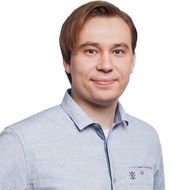Artificial Intelligence Improves Risk Prediction of Complex Diseases

Neural network models developed at the HSE AI Research Centre have significantly improved the prediction of risks for obesity, type 1 diabetes, psoriasis, and other complex diseases. A joint study with Genotek Ltd showed that deep learning algorithms outperform traditional methods, particularly in cases involving complex gene interactions (epistasis). The findings have been published in Frontiers in Medicine.
Traditional methods of assessing genetic risk, such as linear regression, often fail to account for intricate gene interactions that influence disease development. These epistatic effects are difficult to detect using classical models, which reduces the accuracy of predictions.
To overcome these limitations, the researchers simulated data incorporating various types of epistasis—additive, multiplicative, and threshold—and trained neural network models on genetic data from over 58,000 individuals of European descent. The study modelled a range of gene interaction scenarios and assessed their impact on disease risk.
The use of deep learning methods, particularly recurrent neural networks (RNN), significantly improved prediction accuracy. The most notable improvement was observed in predicting the risk of type 1 diabetes: the area under the ROC curve (AUC) for the RNN models reached 0.823.

Maria Poptsova
‘Our research demonstrates new possibilities for personalised medicine and prevention. If we can more accurately identify individual risks, it will help doctors to develop more effective treatment and prevention strategies,’ noted Maria Poptsova, Head of the International Laboratory of Bioinformatics.
The study thus confirms the high effectiveness of non-linear machine learning models in predicting genetic risk, paving the way for more accurate personalisation of medical recommendations and therapies.

Alexander Rakitko
‘The genetic passport is becoming an integral part of modern personalised medicine. It is not enough to simply decode a person's genome—we must interpret the results in the most informative way. That is why we are constantly working on training new models to assess the risks of multifactorial diseases. Our joint research shows that neural networks can be effective in this area,’ said Alexander Rakitko, Director of Science at Genotek.
Based on the study, the team at the HSE AI Research Centre developed specialised software—Deep Learning Models for Polygenic Risk Assessment. The programme predicts the likelihood of disease development by analysing individual genomic variations. This tool has already been licensed by Genotek for use in practical genetic research.
See also:
Scientists Identify Personality Traits That Help Schoolchildren Succeed Academically
Economists from HSE University and the Southern Federal University have found that personality traits such as conscientiousness and open-mindedness help schoolchildren improve their academic performance. The study, conducted across seven countries, was the first large-scale international analysis of the impact of character traits on the academic achievement of 10 and 15-year-olds. The findings have been published in the International Journal of Educational Research.
Critique of Obscure Reason: Artificial Intelligence in the Perception of Mathematicians
Mathematicians at HSE University believe that there is no need to fear losing jobs because of the widespread use of AI, while at the same time they warn against uncritical acceptance of works and projects prepared with its help. AI, however, can be a useful tool in research, creating models and processing large volumes of information.
HSE Scientists Reveal How Disrupted Brain Connectivity Affects Cognitive and Social Behaviour in Children with Autism
An international team of scientists, including researchers from the HSE Centre for Language and Brain, has for the first time studied the connectivity between the brain's sensorimotor and cognitive control networks in children with autism. Using fMRI data, the researchers found that connections within the cognitive control network (responsible for attention and inhibitory control) are weakened, while connections between this network and the sensorimotor network (responsible for movement and sensory processing) are, by contrast, excessively strong. These features manifest as difficulties in social interaction and behavioural regulation in children. The study has been published in Brain Imaging and Behavior.
Similar Comprehension, Different Reading: How Native Language Affects Reading in English as a Second Language
Researchers from the MECO international project, including experts from the HSE Centre for Language and Brain, have developed a tool for analysing data on English text reading by native speakers of more than 19 languages. In a large-scale experiment involving over 1,200 people, researchers recorded participants’ eye movements as they silently read the same English texts and then assessed their level of comprehension. The results showed that even when comprehension levels were the same, the reading process—such as gaze fixations, rereading, and word skipping—varied depending on the reader's native language and their English proficiency. The study has been published in Studies in Second Language Acquisition.
Registration for Russian Olympiad in Artificial Intelligence 2025 Now Open
Registration for the fifth season of the Russian Olympiad in Artificial Intelligence has opened. This year, the competition has gained international status. The event is open to students in the 8–11 grades both in Russia and abroad. The winners will receive benefits when applying to Russian universities.
Mortgage and Demography: HSE Scientists Reveal How Mortgage Debt Shapes Family Priorities
Having a mortgage increases the likelihood that a Russian family will plan to have a child within the next three years by 39 percentage points. This is the conclusion of a study by Prof. Elena Vakulenko and doctoral student Rufina Evgrafova from the HSE Faculty of Economic Sciences. The authors emphasise that this effect is most pronounced among women, people under 36, and those without children. The study findings have been published in Voprosy Ekonomiki.
Scientists Discover How Correlated Disorder Boosts Superconductivity
Superconductivity is a unique state of matter in which electric current flows without any energy loss. In materials with defects, it typically emerges at very low temperatures and develops in several stages. An international team of scientists, including physicists from HSE MIEM, has demonstrated that when defects within a material are arranged in a specific pattern rather than randomly, superconductivity can occur at a higher temperature and extend throughout the entire material. This discovery could help develop superconductors that operate without the need for extreme cooling. The study has been published in Physical Review B.
Scientists Develop New Method to Detect Motor Disorders Using 3D Objects
Researchers at HSE University have developed a new methodological approach to studying motor planning and execution. By using 3D-printed objects and an infrared tracking system, they demonstrated that the brain initiates the planning process even before movement begins. This approach may eventually aid in the assessment and treatment of patients with neurodegenerative diseases such as Parkinson’s. The paper has been published in Frontiers in Human Neuroscience.
Global AI Trends Discussed at International Foresight Workshop at HSE University
At an international foresight workshop on artificial intelligence held at HSE University, Russian and foreign scholars discussed the trends and challenges arising from the rapid development of AI.
Civic Identity Helps Russians Maintain Mental Health During Sanctions
Researchers at HSE University have found that identifying with one’s country can support psychological coping during difficult times, particularly when individuals reframe the situation or draw on spiritual and cultural values. Reframing in particular can help alleviate symptoms of depression. The study has been published in Journal of Community Psychology.


